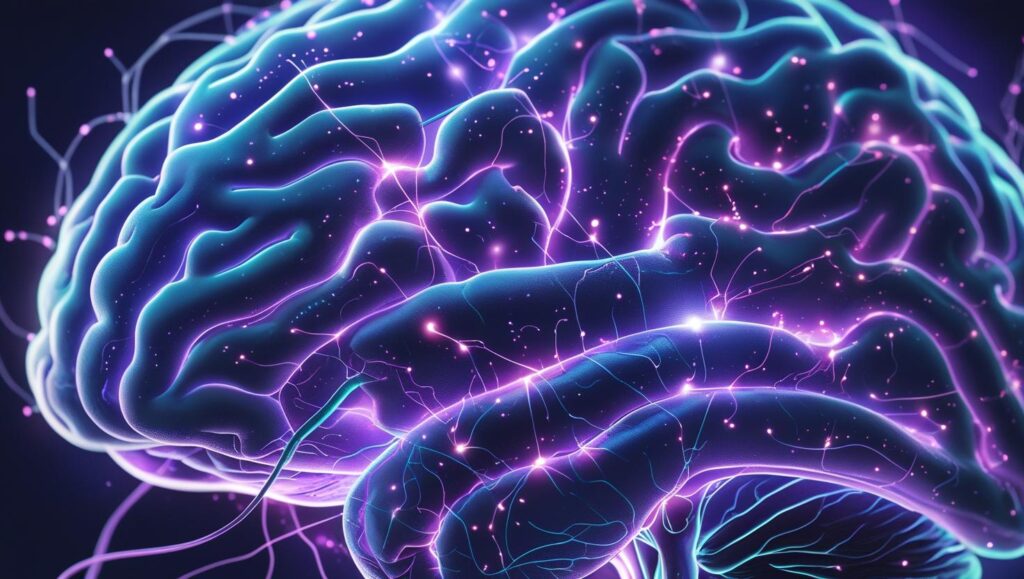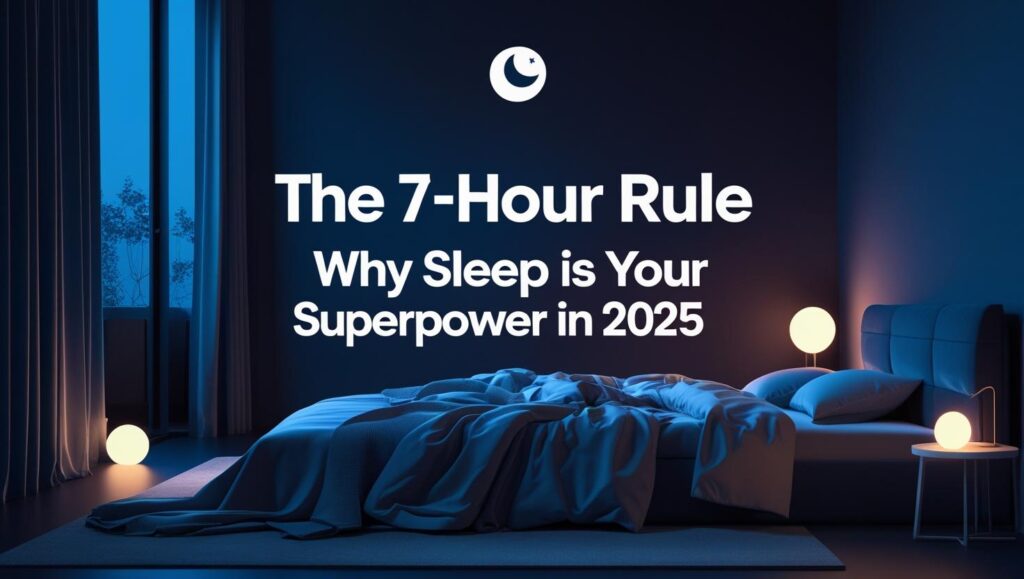💤 Introduction: The Superpower You’re Ignoring
Why sleep is important in 2025 is no longer just a health suggestion — it’s a survival strategy. In a world driven by productivity, many people sacrifice sleep to get more done. But science now proves that sleep is not a luxury — it’s a superpower. From mental clarity to immune strength, the quality of your rest can either fuel your success or sabotage it.
That’s where the 7-Hour Rule comes in. It’s not magic. It’s science. Getting at least seven hours of quality sleep each night is now being recognized as a key driver of peak performance and emotional balance. In 2025, your ability to rest well might just be your most competitive advantage.
🧠 Section 1: Why Sleep Is Important for Brain Power

Your brain is like a high-performance machine—and sleep is its reset button. While you sleep, your brain clears toxins, strengthens memory, and organizes information from the day.
Lack of sleep disrupts your ability to focus, solve problems, and stay emotionally balanced. Studies show that people who sleep less than 6 hours regularly face impaired cognitive performance, mood swings, and burnout.
If you’re feeling overwhelmed and foggy, check out How to Rebuild Your Life When You’re Feeling Lost or Stuck to explore mindful practices beyond just sleep.
Understanding why sleep is important goes beyond just feeling rested. According to the Sleep Foundation, sleep plays a key role in memory, mood regulation, and physical health — especially immune function and hormone balance.
🧬 Section 2: The Physical Benefits of Sleep

Sleep doesn’t just affect how you feel—it affects how your body functions.
- It boosts immune function
- Regulates blood pressure and heart health
- Supports metabolism and weight management
- Promotes cell repair and muscle recovery
Skipping sleep is like skipping maintenance on a high-end sports car. Eventually, performance suffers—and breakdown is inevitable. If you’ve ever wondered why sleep is important for physical recovery, look no further than your energy levels after one good night’s rest.
💡 Section 3: The 7-Hour Rule – Simple But Powerful
So why seven hours? Research shows that adults who consistently get between 7–8 hours of sleep live longer, think clearer, and feel happier.
More than 8 can leave you groggy. Less than 6, and your brain starts to function like it’s drunk.
💭 Try This:
Track your sleep for a week. See how different you feel with 6 vs. 7 hours. The results might surprise you.
🔁 Section 4: Consistency Is King, Not Just Duration
It’s not just about how much you sleep—but when and how regularly.
Waking and sleeping at the same time each day aligns your body with its natural circadian rhythm. This helps you fall asleep faster and wake up more refreshed—no alarms needed.
📌 Pro Tip:
Go to bed and wake up at the same time—even on weekends. Your body will thank you.
🚫 Section 5: What Happens When You Don’t Sleep Enough?
Let’s get real. Poor sleep isn’t just about yawning in meetings. It has serious consequences:
- Increased risk of anxiety and depression
- Weakened immune system
- Poor decision-making
- Relationship conflicts due to irritability
- Increased cravings and weight gain
In short: not sleeping makes every part of life harder than it needs to be.
The National Institutes of Health explains why sleep is important for preventing serious health issues like heart disease, obesity, and depression. Lack of quality sleep impacts nearly every organ in the body.
🔧 Section 6: How to Sleep Better in 2025 (Easy Wins)

Good sleep isn’t just luck—it’s built with habits. Here are practical ways to start:
- Digital Curfew: No screens at least 1 hour before bed.
- Sleep Environment: Cool, dark, and quiet. Use blackout curtains and white noise.
- Evening Routine: Try reading, journaling, or meditation.
- Caffeine Cutoff: No caffeine after 2 p.m.
- Stick to the 7-Hour Rule: Respect it like a business meeting. It matters.
Check out Digital Minimalism: Clear the Noise, Do More Work to learn how unplugging can help improve your sleep quality.
🧘♀️ Section 7: Sleep & Mental Clarity
Have you ever noticed how your anxiety levels spike after a bad night’s sleep? That’s not your imagination. Poor sleep increases cortisol, the stress hormone. Over time, this constant elevation leads to burnout, brain fog, and low resilience.
When you sleep well, you don’t just rest—you reset. You wake up with better clarity, emotional control, and optimism to face your day.
🌟 Final Thoughts: Sleep Is Your Silent Superpower
We often celebrate the hustle, late nights, and pushing through exhaustion. But if there’s one thing 2025 is teaching us, it’s why sleep is important for long-term success and well-being. The 7-Hour Rule isn’t just about waking up refreshed — it’s about building a life rooted in clarity, resilience, and better decisions.
Why sleep is important can’t be overstated. It fuels your energy, focus, and emotional strength. So, if you truly want to show up as your best self, don’t sacrifice sleep — protect it.
The most powerful version of you is the well-rested one.
